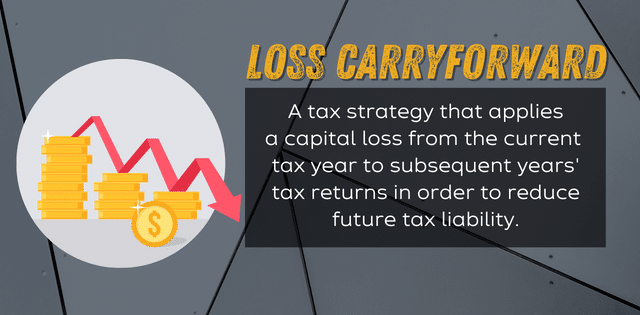Real estate looks like an attractive investment in today’s high inflation environment, but it comes with risks. If your investment property loses value, you end up with a capital loss. Nobody wants to lose money, but capital losses can provide valuable tax relief when you need it most.
However, capital loss benefits have limitations, and the IRS has strict rules for deducting your losses. We’ll cover it all in this guide to capital losses for real estate investors.
What is a Capital Loss?
A capital loss occurs when you sell an investment for less than the purchase cost. In this scenario, your capital loss equals the purchase price minus the sales price.
Conversely, you incur a capital gain if you sell your investment for a profit. The government imposes a capital gains tax on the proceeds from such sales. Read our article on capital gains for more info.
You can only incur a capital loss once you sell your asset. If your property loses its value, you can’t claim a capital loss until you sell it.
If you own a property that’s currently worth less than you paid for it, you are carrying an unrealized loss. You must realize the loss by selling the property before you can claim a loss.
Capital losses can offset capital gains and net income for tax purposes, up to a limit. However, not all losses will offset gains, and the IRS has strict limits on the amount you can deduct in any given year.
Rules for Deducting Capital Losses
If your capital losses exceed your capital gains for the year, you can only deduct up to a certain amount against your other income. Capital losses are limited to $3,000 for taxpayers that file single, married filing jointly, or head of household. If you use the married filing separately status, you can only deduct $1,500 each year.
The IRS limit only applies to capital losses that exceed your total capital gains for the year. As a result, capital losses are much more valuable as a means for offsetting capital gains in a given year.
The Wash Sale Rule
Although it doesn’t typically apply to real estate, the IRS has a rule that prohibits taxpayers from selling an asset to claim a capital loss and then buying the same asset back within 30 days.
The IRS labels these transactions as ‘wash sales’. If you violate this rule, the IRS can nullify your capital loss deduction, potentially resulting in back taxes, penalties, and interest.
This rule doesn’t really effect real estate investors, as it primarily applies to stocks and other securities. However, you should be aware of all the rules.
How Does the Capital Loss Deduction Work?
If you have any capital gains in a given tax year, you can offset them with any capital losses you have incurred. For example, if you have $10,000 in capital gains and $7,000 in capital losses, you can deduct your losses, and you’ll only pay taxes on the remaining $3,000 capital gain.
However, you could run into the IRS’s $3,000 limit if your capital losses exceed your capital gains. Married filing separately taxpayers can only deduct $1,500 apiece.
Your capital loss deduction offsets other types of income, such as wages and business income, up to the IRS limit. However, any capital loss exceeding the limit can carry forward to subsequent tax years.
If your net capital loss is more than this limit, you can carry the loss forward to later years. Capital losses don’t expire, so you can carry forward any excess losses indefinitely,
Claiming Your Capital Loss Deduction
Taxpayers must use Schedule D of Form 1040 to calculate and report any capital gains and losses. Use this form to list any capital gains and losses on this form, calculate your net gain or loss, and indicate whether you’re carrying over any excess losses to future tax years.
Can I Claim Capital Losses on Real Estate?
When it comes to real estate, you cannot create a capital loss on a residence. This includes your primary residence, second homes, and vacation homes.
As a result of these stipulations, only real estate investors can claim capital losses on property sales. Furthermore, any gain or loss from the sale of an investment property is calculated using the adjusted cost basis.
The adjusted cost basis is calculated as the purchase price + improvements – depreciation. The gain is calculated as the sale price – selling expense – adjusted cost basis.
Closing Thoughts
Capital losses on real estate can be a challenging but important aspect of managing a real estate investment portfolio. While losing money on a property can be painful, it’s important to understand that these losses can have tax implications that may help offset some of the financial burden.
By understanding the rules for deducting capital losses, you can make the most of your losses and minimize your tax liability. Additionally, by keeping accurate records of your gains and losses and considering strategies such as tax-loss harvesting, you can help mitigate the impact of any future losses.

